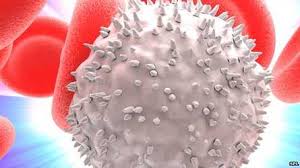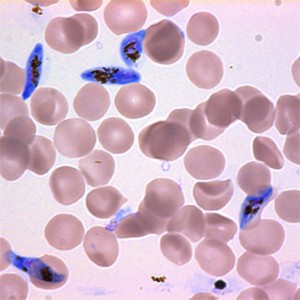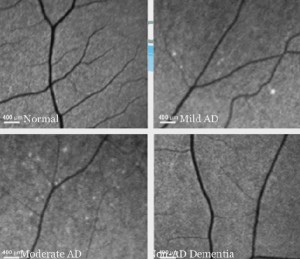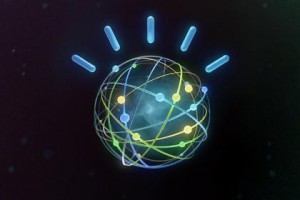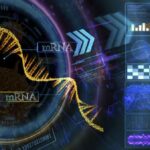July 31, 2014 – A universal blood test to rule out or confirm cancer in patients has been developed by British researchers. A vaccine to prevent malaria, developed by GlaxoSmithKline (GSK), is undergoing promising clinical trials in Africa. A retinal imaging device developed at Cedars-Sinai Medical Center in the United States, detects changes indicating Alzheimer’s Disease as much as two decades before symptoms appear, and may soon receive FDA approval. Watson, the IBM AI technology and Jeopardy champion is being trained in oncology at Memorial Sloan Kettering Cancer Center in New York to advise oncology fellows treating breast, lung and colorectal cancer. And Watson will be doing a similar job at University of Texas MD Anderson Cancer Center in Houston working with oncology fellows treating leukemia. Not bad for ten days.
Blood Test for Cancer
It’s called the Lymphocyte Genome Sensitivity (LGS) test. It looks at the DNA contained within lymphocytes, a white blood cell found in the human circulatory system. In initial studies the LGS test has shown molecular damage to confirm pre-cancerous conditions and early stage cancer in patients. It works by exposing the lymphocytes to ultraviolet light (UVA). People with cancer appear to have DNA more sensitive to UVA damage. The test has been developed at the University of Bradford.
GSK Develops Malaria Vaccine
It’s called RTS,S and targets Plasmodium falciparum, the malaria parasite (seen in blue contrast in the image below). It may prove to be the most significant medical breakthrough to hit Sub-Saharan Africa in decades where 90% of global malaria deaths happen each year with 77% occurring in children under the age of 5. In trials in eight African countries over 16,000 children have received the vaccine which prevents the parasite from invading the liver, then entering the circulatory system where it attacks red blood cells. RTS,S is administered in three injections. If the vaccine receives World Health Organization approval GSK has stated it will be made available at manufacturing cost plus 5%.
Retinal Imaging Scan to Detect Alzheimer’s
My mother had Alzheimer’s. My wife’s mother had Alzheimer’s. Do I really want to know if I will get it twenty years or less from now? Well if I do want to know a non-invasive retinal imaging technology developed at Los Angeles’ Cedars-Sinai Medical Center can tell me.
The 20-minute test, no more invasive than testing for glaucoma and other eye conditions, shows the presence of amyloid plaque in the retina. Amyloid plaque is the primary suspect in the onset of Alzheimer’s and dementia. By detecting it in the retina before it begins to accumulate in the brain it is hoped that this test will allow for early intervention in Alzheimer’s before irreversible cognitive deficits emerge.
The technology has been licensed to NeuroVision Imaging LLC with FDA approval anticipated for sometime in 2015.
Jeopardy Champion Watson to Assist Future Oncologists
It’s one thing to be a master of trivia and beat the best in the world at Jeopardy in front of a national television audience. It’s quite another to use the same technology to change the way cancer is treated by accumulating as much knowledge about the subject in a computing device with advanced artificial intelligence.
Ever since IBM demonstrated that Watson could win at Jeopardy, the company has been looking at where its AI technology could be deployed for real world application. Medicine seems to be the place with the company spending $1 billion U.S. on Watson as a cancer expert.
Two versions of Watson are to be deployed. One at Memorial Kettering Cancer Center, the other at MD Anderson Cancer Center. Both versions of Watson will be loaded with all of the latest research findings related to different cancer types. This will include all knowledge on genomic sequencing as it relates to cancer treatment. What under normal circumstances could take an oncologists five or months to research will now, with Watson, take a few minutes. All the oncologists will have to do is load the patient’s genomic data. Watson will then generate a schematic showing the genome alterations. The oncologist will then be able to explore options for possible treatment by a mouse click.
This evolution of Watson has not been a smooth one. The AI technology has had to master medical jargon. And you thought reading a doctor’s prescription authorization was tough?
